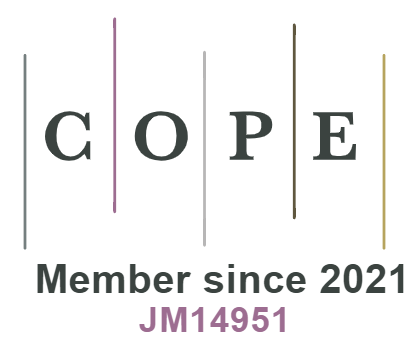Cognitive profile of a child with aphasia‑type speech impairment: diagnostic and therapeutic implications
DOI:
https://doi.org/10.18778/2544-7238.07.17Keywords:
aphasia, alalia, cognitive functioning of a child with aphasia, diagnosis of a child with aphasia, childhood apraxia of speechAbstract
The article addresses the issue of cognitive functioning of children with aphasia‑type speech impairment. Attention was paid to the very high diversity of this group of children, which depends largely on the depth and extent of neurological disorders in the motor and/or perceptual aspects. Relevant models and theories on memory processes are presented, which may explain the difficulties in cognitive functioning symptomatic of children with aphasia‑type speech impairment.
Downloads
References
Baddeley A., 1996, Exploring the Central Executive, „The Quarterly Journal of Experimental Psychology Section A”, Vol. 49(1), s. 5–28, https://doi.org/10.1080/713755608
Google Scholar
Baddeley A., 1999, Essentials of Human Memory, Hove: Psychology Press/Taylor & Francis.
Google Scholar
Baddeley A., 2000, The Episodic Buffer: A New Component of Working Memory?, „Trends in Cognitive Science”, Vol. 4, s. 417–423.
Google Scholar
Baddeley A., 2003, Working Memory and Language: An Overview, „Journal of Communication Disorders”, Vol. 36(3), s. 189–208.
Google Scholar
Baddeley A., 2012, Working Memory: Theories, Models, and Controversies, „Annual Review of Psychology”, Vol. 63, s. 1–29.
Google Scholar
Bishop D.V.M., 1997, Cognitive neuropsychology and developmental disorders: Uncomfortable bedfellows, „The Quarterly Journal of Experimental Psychology”, Vol. 50A, s. 899–923.
Google Scholar
Dehn M.J., 2008, Working Memory and Academic Learning: Assessment and Intervention, New Jersey: John Wiley & Sons, Inc.
Google Scholar
Dewey D., Roy E.A., Square‑Storer P.A., Hayden D., 1988, Limb and oral praxic abilities of children with verbal sequencing deficits, „Developmental Medicine & Child Neurology”, No. 30, s. 743–751.
Google Scholar
Fiori S., Pannek K., Podda I., Cipriani P., Lorenzoni V., Franchi B., Pasquariello R., Guzzetta A., Cioni G., Chilosi A., 2021, Neural Changes Induced by a Speech Motor Treatment in Childhood Apraxia of Speech: A Case Series, „Journal of Child Neurology”, Vol. 36(11), s. 958–967, https://doi.org/10.1177/08830738211015800
Google Scholar
Fish M., Skinder‑Meredith A., 2023, Here’s How to Treat Childhood Apraxia of Speech, San Diego: Plural Publishing Inc.
Google Scholar
Gathercole S., Baddeley A., 1989, Evaluation of the role of phonological STM in the development of vocabulary in children: A developmental study, „Journal of Memory and Language”, Vol. 28(2), s. 200–213, https://doi.org/10.1016/0749-596X(89)90044-2
Google Scholar
Gruszczyk‑Kolczyńska E., Zielińska E., 2005, Wspomaganie dzieci w rozwoju zdolności do skupiania uwagi i zapamiętywania, Warszawa: Wydawnictwa Szkolne i Pedagogiczne.
Google Scholar
Guenther F.H., 2002, Neural control of speech movements. To appear, [w:] A. Meyer, N. Schiller (red.), Phonetics and Phonology in Language Comprehension and Production: Differences and Similarities, Berlin: Mouton de Gruyter, s. 209–240.
Google Scholar
Guenther F.H., 2016, Neural control of speech, Cambridge: MIT Press, https://doi.org/10.7551/mitpress/10471.001.0001
Google Scholar
Hulme C., Roodenrys S., 1995, Practitioner review: Verbal working memory development and its disorders, „Journal of Child Psychology and Psychiatry”, Vol. 36, s. 373–398.
Google Scholar
Kent R.D., 2004, Models of speech motor control: Implications from recent developments in neurophysiological and neuro‑ behavioral science, [w:] B. Maassen, R. Kent, H.F.M. Peters, P.H.H.M. van Lieshout, W. Hulstijn (red.), Speech motor control in normal and disordered speech, Oxford: Oxford University Press, s. 1–28.
Google Scholar
Maruszewski T., 2011, Psychologia poznania. Umysł i świat, Gdańsk: Gdańskie Wydawnictwo Psychologiczne.
Google Scholar
Nijland L., Terband H., Maassen B., 2015, Cognitive Functions in Childhood Apraxia of Speech, „Journal of Speech, Language, and Hearing Research: JSLHR”, Vol. 58(3), s. 550–565, https://doi.org/10.1044/2015_JSLHR‑S-14-0084
Google Scholar
Raine A., Hulme C., Chadderton H., Bailey P., 1991, Verbal short‑term memory span in speech‑disordered children: Implications for articulatory coding in short‑term memory, „Child Development”, Vol. 62, s. 415–423.
Google Scholar
Shriberg L.D., Lohmeier H.L., Strand E.A., Jakielski K.J., 2012, Encoding, memory, and transcoding deficits in childhood apraxia of speech, „Clinical Linguistics & Phonetics”, Vol. 26, s. 445–482.
Google Scholar
Tourville J.A., Guenther F.H., 2011, The DIVA model: A neural theory of speech acquisition and production, „Language and Cognitive Processes”, Vol. 26(7), s. 952–981, https://doi.org/10.1080/01690960903498424
Google Scholar
Downloads
Published
Versions
- 2023-12-01 (2)
- 2023-11-29 (1)
How to Cite
Issue
Section
License

This work is licensed under a Creative Commons Attribution-NonCommercial-NoDerivatives 4.0 International License.












